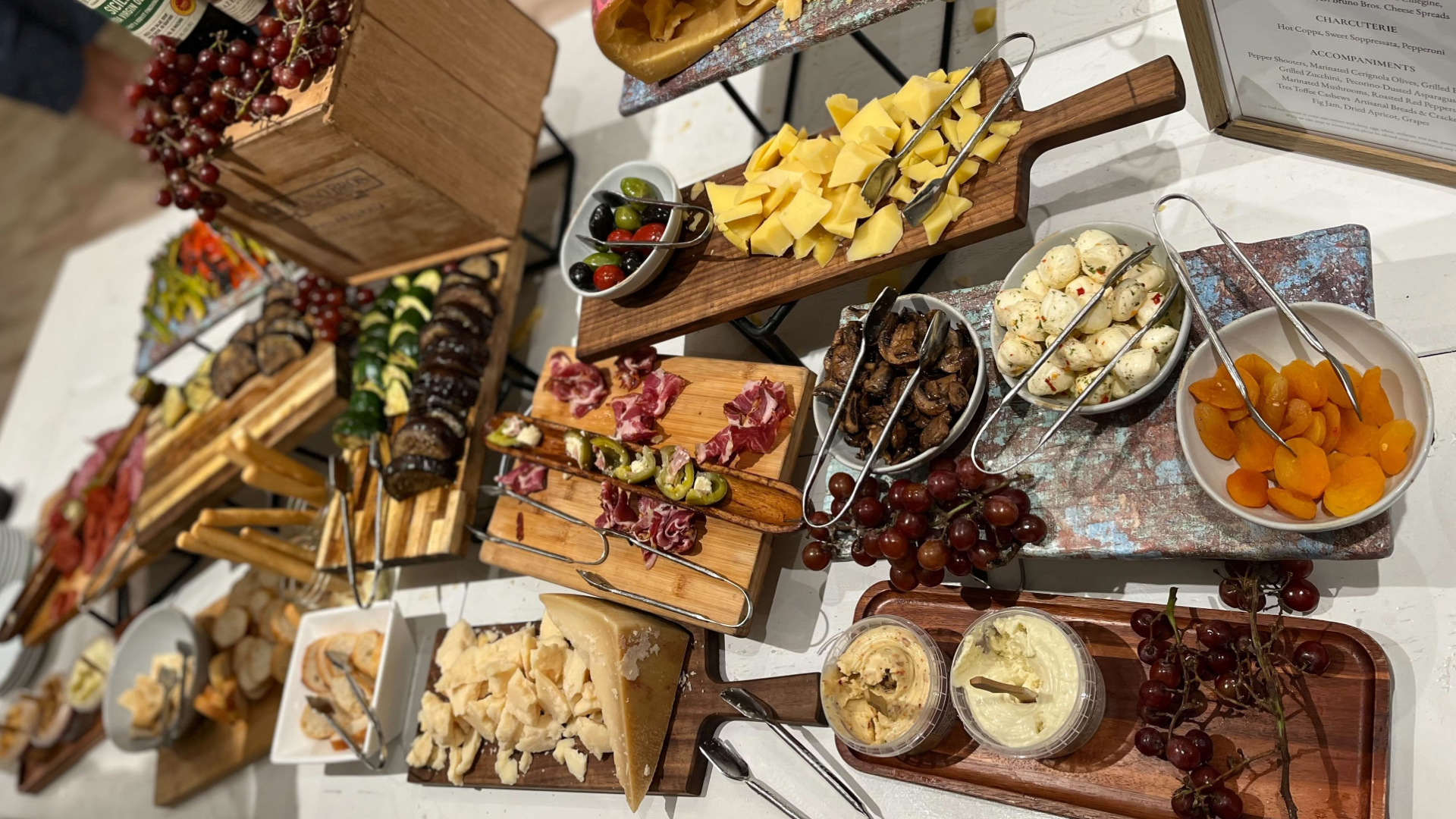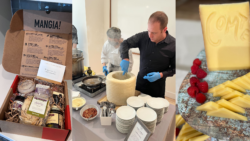Why do we have Cheese Day at Think Company?

Like with any other culture, Thinkers may have conversations that would seem strange to folks outside the company. Sometimes that conversation gravitates towards cheese.
Although I never had any intention for Cheese Day to become a thing, Think Company celebrated it for ten straight years before the pandemic, and this year it returned! It has been as humble as someone running out to buy a wedge of triple crème and a hunk of gruyere, and as elaborate as a cheese-themed catered party with hundreds of guests. We’ve moved it around the calendar and brought in guest cheesemongers. It started on a whim, but I’m humbled every time someone says it’s part of our company culture.

It may feel inaccurate these days, but I still believe in the goodness of people. Whether written or unwritten, almost every culture and belief system in the world has some kind of rule of hospitality to ensure strangers are welcomed. I believe this rule is embedded in our very nature. We’re all aware of a time where we were a stranger in someone else’s orbit, and we know how vulnerable and uncomfortable that can be. If a culture encodes the importance of hospitality, it’s in the hope that the favor will be returned to everyone as they navigate the world.
A day will come where you are the immigrant, the wallflower at the dance, the new employee, the one who speaks with an accent, the kid wearing the wrong shoes, the only one at the pool party who can’t swim, and you’ll hope that someone finds a way to make you welcome.
Good experience design is hospitality
At Think Company, we work to ensure that everything we design and build is welcoming to everyone. Whether it’s focusing on the jobs-to-be-done of a system, fixing usability issues, creating inclusive editorial guidelines, or ensuring our systems can be used by people using assistive devices. We are the ambassadors for people as they experience the unfamiliar and unwelcoming world around them. Hospitality is at the center of experience design and it’s the default position of every thinker.
Cheese day: The origin story
Cheese Day started years ago as my father navigated an unfamiliar situation. He emigrated to the US from France after WWII to go to college. He became a citizen, fell in love with my mother, and they raised our family as a hybrid of American and French culture. He never shunned his French heritage, but he was always uncomfortable when folks treated him as a foreigner. He preferred to be known as an American who spent his first 17 years in France, and he would share that heritage with friends and family through food; very often, by sharing cheese.
When people ask me about my father’s French roots, I often talk about our weekend outings to buy cheese and good bread when I was a kid. Like many parents in the 70s and 80s, he struggled to maintain a healthy balance between his work and family life. Even so, Saturdays and Sundays were for family, and he always honored that. Without thinking it would become a thing at Think Company, I once carried that tradition to some of our clients and coworkers and brought a selection of cheeses to a meeting. We repeated it the next year because it was fun and unique. Somewhere along the way it became a Think Company tradition.

The international language of food
When I encounter someone who is a stranger in my vicinity, I often try to make them feel welcome by asking about their food and food traditions. It’s a friendly way to learn about someone else’s culture. More often than not it opens up passion from someone who may feel uneasy about being in a strange place. Their excitement becomes infectious. If you’re lucky, it results in an invitation to a meal for some first-hand experience. My parents would head this off by bringing cheese with them when they were invited guests. Talking with strangers about food can make the world a smaller, less intimidating place.
These conversations can be as international as the differences between Scandinavian and Peruvian cuisine, or as local as debating the styles of Carolina barbecue. It can even be hyperlocal: ask three Philadelphians about cheesesteaks and you’ll get four opinions and, if it’s a really good debate, someone may throw a battery at you.

To the many cheese days to come
I am incredibly flattered that Cheese Day has become a part of Think Company life. New employees ask about it, old timers tell stories of Cheese Days of yore, and past clients and alumni have fond memories of their cheesy times with us. It will continue to evolve as the organization evolves, and that’s expected. As I reflect on it, I’m proud that we have a food tradition that unites our organization as a culture.
So, the next time you encounter someone who may feel out of place, consider asking them about the food traditions that make them feel at home. It may help them open up and feel less out of place.



